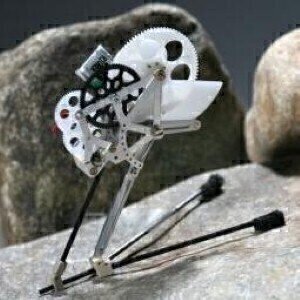-
 Scientists could make better robots if they allow them to learn like humans do
Scientists could make better robots if they allow them to learn like humans do
News
Scientists find baby steps help robots learn
Jan 21 2011
Like humans do, robots can learn to walk gradually if they are allowed to grow and change in shape as they do so, says an engineer from the University of Vermont.
Roboticist Josh Bongard compared fixed-shape robots with ones that began in a tadpole-like gestational form, before gradually adopting an upright, four-legged stance.
Other scientists in the field may be interested to hear that the latter not only learned to walk faster; they also learned to walk better.
For instance, when hit with a stick, fixed-shape robots were more likely to fall over than their counterparts, whose gait proved more robust.
Successive generations of gestational robots mastered the art of walking more quickly than their predecessors, the roboticist also found.
The University of Vermont has almost 1,300 faculty members, 1,500 graduate students and more than 10,000 undergraduates.
Digital Edition
Lab Asia Dec 2025
December 2025
Chromatography Articles- Cutting-edge sample preparation tools help laboratories to stay ahead of the curveMass Spectrometry & Spectroscopy Articles- Unlocking the complexity of metabolomics: Pushi...
View all digital editions
Events
Jan 21 2026 Tokyo, Japan
Jan 28 2026 Tokyo, Japan
Jan 29 2026 New Delhi, India
Feb 07 2026 Boston, MA, USA
Asia Pharma Expo/Asia Lab Expo
Feb 12 2026 Dhaka, Bangladesh


















